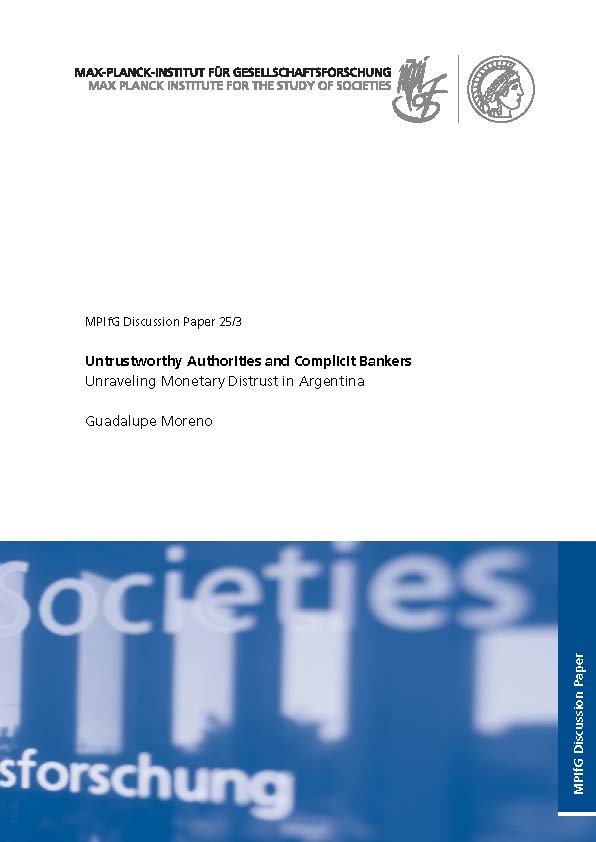Untrustworthy Authorities and Complicit Bankers: Unraveling Monetary Distrust in Argentina
Abstract:
Money, capitalist market societies’ paramount contract, relies on the belief in its enduring value. However, we still know surprisingly little about the social foundations that sustain that belief. How is our collective trust in the enduring value of money socially built, and what happens if people lose such trust? What if a society convinces itself that policymakers cannot guarantee that the value of money will persist over time? In this paper, I use Argentina as a monetary laboratory to study how almost eighty uninterrupted years of high inflation and successive currency crises led to a social trauma that crystalized in the emergence of a distrust narrative: a strong popular belief that neither the state nor the local financial system will be able to preserve the value of the national currency or the worth of savings over time. By analyzing the production and reproduction of this narrative and its long-lasting effects on the Argentine economy, I show how rooted distrust in a currency fosters a myriad of practices aimed at protecting savings, which impose severe limits on monetary governance. I emphasize that when state authorities lose control of collective expectations and negative monetary imaginaries take off, a vicious cycle unfolds in which instability, inflation, and devaluation reinforce each other.


